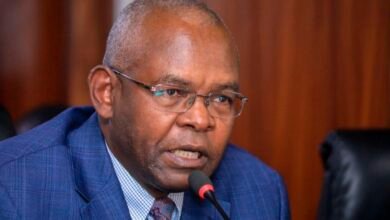
Cheque volumes and values have continued to fail as individuals and businesses make greater use of electronic payment instruments, particularly during the COVID-19 pandemic.
Prior to the pandemic, several countries had initiated discussions on the future of cheques.
In countries like Sweden and Norway cheques have either been eliminated or form a small fraction of the payment instruments in use.
CBK gave an example of Namibia where in, 2019 and South Africa in 2020 phased out the use of cheques as a payment instrument and directed payments to alternative electronic payments methods.
Digital payment transaction channels have grown vastly to subdue us of cheques in the last decade owing to being more efficient for businesses and individuals.
The Central Bank of Kenya (CBK) said in its 2022-2025 national payments strategy that the paper-based payment channel will need reforms as part of the alignment of the automated clearing house (ACH) with an emerging global practice that is marking a shift away from cheques.
“These global trends point to the prominent role that is currently being played by electronic payments with a shift away from paper-based instruments such as cheques,” said CBK in its National Strategy Payment Plan 2022-25.
According to Business Daily, the value of cheques increased from Ksh.2.05 trillion in 2011 to Ksh.2.54 trillion in 2021.
However, digital payment transactions have proved to be the way to go where the volume of cash transferred through mobile money agents increased significantly to Ksh.6.87 trillion in 2021.
Absa Group had said that it would do away with the use of cheques.
The bank will still honour cheques from third parties, as the instrument slowly declines in use. An article by Absa Group Head of Retail and Business Banking Bongiwe Gangeni reveals that the bank will exit the form of payment in favour of growing digital payment methods.
“…Absa made a business decision to exit cheques as a payment instrument by the end of this year,” said Gangeni.
Gangeni said that the inevitable exit is partly a risk management initiative. Cheques need verification and validation over extended periods which leaves room for abuse and fraud.
Further, exiting the cheque system follows efforts of the South African Reserve Bank to reduce the maximum value of a cheque from R5 million ($286,000) to R50,000 ($2,861) in the past eight years.





